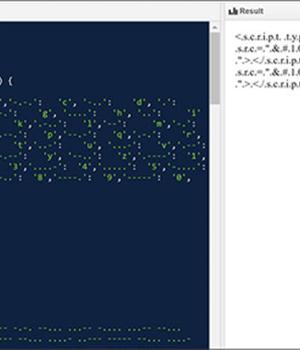Security News > 2021 > August > Hackers Spotted Using Morse Code in Phishing Attacks to Evade Detection

Microsoft has disclosed details of an evasive year-long social engineering campaign wherein the operators kept changing their obfuscation and encryption mechanisms every 37 days on average, including relying on Morse code, in an attempt to cover their tracks and surreptitiously harvest user credentials.
The phishing attacks take the form of invoice-themed lures mimicking financial-related business transactions, with the emails containing an HTML file.
"The HTML attachment is divided into several segments, including the JavaScript files used to steal passwords, which are then encoded using various mechanisms. These attackers moved from using plaintext HTML code to employing multiple encoding techniques, including old and unusual encryption methods like Morse code, to hide these attack segments".
Microsoft said it detected the use of Morse code in the attacks' February and May 2021 waves, while later variants of the phishing kit were found to direct the victims to a legitimate Office 365 page instead of showing a fake error message once the passwords were entered.
"Email-based attacks continue to make novel attempts to bypass email security solutions," the researchers said.
"In the case of this phishing campaign, these attempts include using multilayer obfuscation and encryption mechanisms for known existing file types, such as JavaScript. Multilayer obfuscation in HTML can likewise evade browser security solutions."
News URL
Related news
- DPRK Hackers Steal $137M from TRON Users in Single-Day Phishing Attack (source)
- YouTube warns of AI-generated video of its CEO used in phishing attacks (source)
- New ‘Rules File Backdoor’ Attack Lets Hackers Inject Malicious Code via AI Code Editors (source)
- Ukrainian military targeted in new Signal spear-phishing attacks (source)
- TechRepublic EXCLUSIVE: New Ransomware Attacks are Getting More Personal as Hackers ‘Apply Psychological Pressure” (source)
- Hackers Repurpose RansomHub's EDRKillShifter in Medusa, BianLian, and Play Attacks (source)
- Chinese FamousSparrow hackers deploy upgraded malware in attacks (source)
- North Korean hackers adopt ClickFix attacks to target crypto firms (source)
- Phishing platform 'Lucid' behind wave of iOS, Android SMS attacks (source)
- Russian hackers attack Western military mission using malicious drive (source)